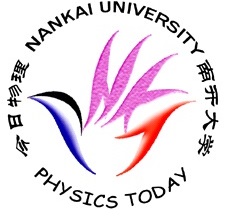“Plasmonic keys” under three-dimensional orientation-unlimited polarization nanoscopy
——2012-2013年度今日物理讲座第六期
讲座时间:11月23日(Fri)18:30-20:00 讲座地点:三教301
| 讲座摘要: |  |
Encryption of the information in the polarization state of a writing beam would provide a much higher level of security, requiring a polarization “key” for the visualisation of the original information. The sharply polarization-selective excitation of the surface plasmon resonance in gold nanorods gives rise to the largely enhanced scattering and appealing local field enhancement effects, which mediates a new platform for polarization photonics. In this regard, gold nanorods can be employed as plasmonic keys for ultra-secure polarization information encryption, providing arbitrary three-dimensional (3D) polarization orientation can be generated to tailor the excitation of correspondingly aligned gold nanorods. Even though a radially polarized light can be focused by a high numerical aperture (NA) objective to generate a strongly enhanced longitudinal polarization component, creating arbitrary 3D light polarization orientation for ultra-secure polarization information encryption is still elusive.
In this talk, I will present a new type of 3D orientation-unlimited polarization nanoscopy by configuring single vectorial beams through superposition of weighted radial and azimuthal polarisation beams. This intriguing focal polarisation control enables tailoring the interaction of light polarisation with 3D randomly dispersed gold nanorods for ultra-secure polarisation information encryption.
讲座人简介:
Dr. Xiangping Li received his PhD at Centre for Micro-Photonics (CMP), Swinburne University of Technology, Australia in 2010. After graduation, he joined CMP as a postdoctoral staff. He was an awardee of an Australian Research Council Postdoctoral Fellow and Swinburne’s Vice Chancellor Research Award for Early Career in 2011 and 2012, respectively. His main research interests are polarization nanoscopy, 3D display and optical data storage.





